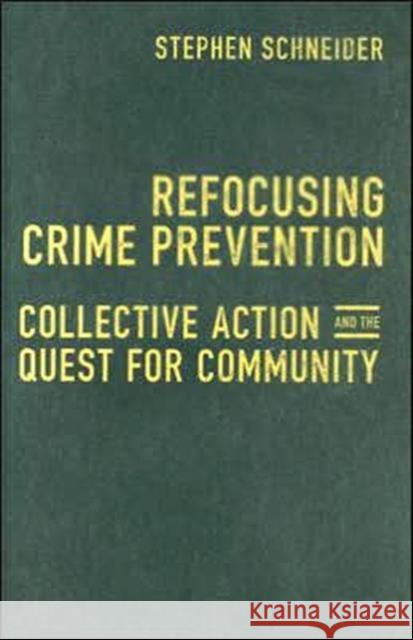Refocusing Crime Prevention: Collective Action and the Quest for Community » książka
Refocusing Crime Prevention: Collective Action and the Quest for Community
ISBN-13: 9780802035509 / Angielski / Twarda / 2007 / 368 str.
Refocusing Crime Prevention: Collective Action and the Quest for Community
ISBN-13: 9780802035509 / Angielski / Twarda / 2007 / 368 str.
(netto: 348,41 VAT: 5%)
Najniższa cena z 30 dni: 364,34
ok. 22 dni roboczych.
Darmowa dostawa!
Despite widespread concern over crime, public participation in local crime prevention programs is generally low and limited to a small, homogeneous group of middle-class home-owing residents. Conspicuously absent from these programs are the very people who are the most vulnerable to crime: the poor, immigrants, and visible minorities.Refocusing Crime Prevention explores the capacity of disadvantaged neighbourhoods to organize around local crime and disorder problems. Obstacles to the mobilization of communities around crime are strongly related to demographic and socio-psychological characteristics of residents, including low socioeconomic status and a lack of local social integration. Other obstacles stem from weaknesses in program implementation, such as inappropriate or ineffectual community outreach and communications, a lack of resources, and leadership voids. Many of these afore-mentioned barriers flow from broader structural factors, including politico-economic forces that spatially concentrate poverty, crime, and apathy; a culture of pervasive individualism, and a reliance on the welfare state for local problem solving.Using thorough ethnographic research, Stephen Schneider identifies, comprehensively details, and critically examines the many factors that obstruct public participation in community crime prevention programs, while formulating strategies and theories that attempt to empower disadvantaged and marginalized communities. Refocusing Crime Prevention will aid immensely in the struggle for crime reduction and safer neighbourhoods.











